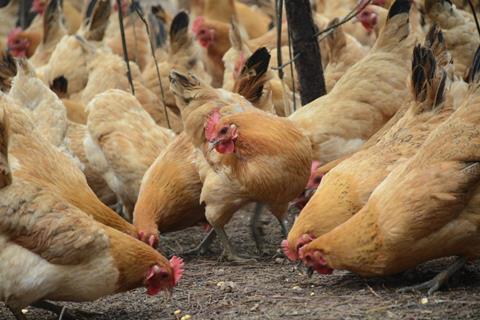UK poultry producers are being warned to stay on alert after two outbreaks of Newcastle Disease (ND) were found in commercial poultry at premises in East Flanders in Belgium.
Newcastle disease is a contagious viral bird disease affecting chickens and other captive and wild birds.

Humans are not normally affected, but people in direct contact with infected birds may develop a very short-term eye infection, which passes without treatment.
The disease was last confirmed in Great Britain in 2006.
Of the two outbreaks in Belgium, one premises had 3,600 poultry present and was reportedly a dealer in hobby birds, according to the Belgian Authorities.
The second outbreak was in a much larger commercial premises with approximately 60,000 poultry and, according to the disease report, fewer than 10% of birds showed severe clinical signs or mortality.
Recent cases in Belgium, Netherlands and Luxembourg have led to Animal and Plant Health Agency (APHA) experts to advise that the risk of the disease in UK flocks has risen from ‘low’ to ‘medium’.
Public Health England has urged all poultry keepers in the UK to remain vigilant at this time.
Christine Middlemiss, UK chief veterinary officer, said: “The Animal and Plant Health Agency experts have advised that the risk of disease has risen to ‘medium’ following reports of Newcastle Disease in mainland Europe.
“I urge all poultry keepers - whether of commercial, smallholder flocks or specialist breeds or pet chickens - to remain vigilant to the clinical signs of this disease, and urge them to put in place strong biosecurity measures to ensure the health and welfare of their birds.”
How to spot Newcastle disease
As the disease develops affected birds may show some of the following signs:
• respiratory distress such as gaping beak, coughing, sneezing, gurgling, rattling• nervous signs characterised by tremors and paralysis and twisting of the neck• unusually watery faeces (diarrhoea) that are yellowish-green in colour• depression• lack of appetite
If a bird keeper suspects that their birds may be infected with Newcastle Disease, they should contact their private vet and the APHA immediately.
For APHA contact details, click here.
For more details on the outbreak, click here.
This story was originally published on a previous version of the Meat Management website and so there may be some missing images and formatting issues.















